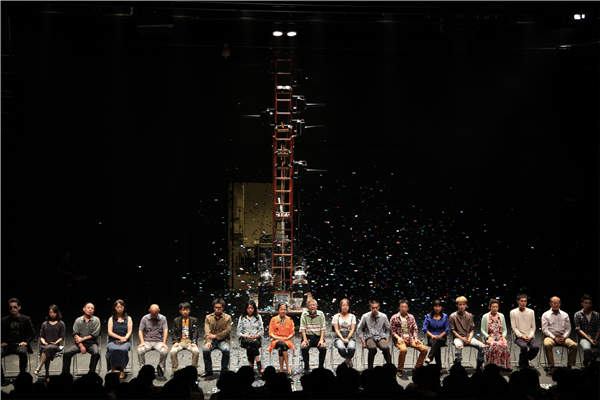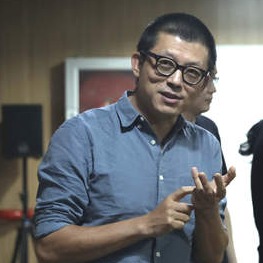Let's talk about it


Play gives audience chance to listen to the life experiences, be they bitter or sweet, of one particular performer or the entire cast at the same time, Chen Nan reports.
It is 6 pm, Tuesday, and it's getting dark outside. Sixteen people of various occupations and ages gather at a small rehearsal room located in the capital's downtown and they didn't know what to expect.
From a nephrologist in her 30s, a computer teacher in his 40s to a singer-songwriter in her 20s and a dumpling restaurant owner in his 50s, they are among the 19 amateur performers of director Li Jianjun's play, titled One Fine Day.
On that particular day, they met for the first time. To warm up, the director asked them to play games, such as walking in circles at various paces, during the first two hours, and the final hour saw them rehearse the play.
They have a week to prepare before the show, which will be staged on Sept 25, 26 and 27 at the National Theatre of China in Beijing.
The 70-minute play will see them recount their personal stories and their life experiences onstage. They will sit in a row and wear signal transmitters.
The audience will be provided with headphones and signal receivers before entering the theater.
They can listen to different stories by tuning into the specific channel of the performers' signal transmitters.
The audience members have to make decisions as part of this theater experience, says the director.
"They can listen to one person's narration from the beginning to the end, or they can listen to different people talk. They can also take off the headphones and listen to the talking of all performers, which will be chaotic," says Li.
"For the people on the stage, all they need to do is to talk and finish their stories."
The play, One Fine Day, premiered in 2013 in Beijing as Li sought to build up a different relationship between actors and the audience in the theater.
Since the day of the play's birth, it has been performed by amateur actors and actresses.
So far, the play has five versions and has been staged in five cities: Beijing, Hangzhou of Zhejiang province, Shanghai, Shenzhen of Guangdong province and Hong Kong.
Letting ordinary people tell their stories is challenging because their stories have to be different, convincing and must resonate with the audience.
When the play is restaged, it gathers a group of new people telling their stories, which keeps the play alive and always new.
Over 100 people have performed in the play, ranging in age from 16 to 91.





































